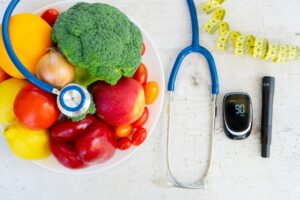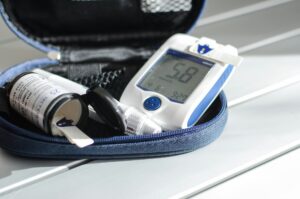Top Foods to Avoid if You Have Diabetes
Living with diabetes demands a vigilant approach to managing your diet. The foods you consume directly impact your blood sugar levels, overall health, and well-being. While it’s essential to focus on what you can eat, being aware of foods you should avoid is equally crucial. This blog post dives into the top foods that people with diabetes should steer clear of to maintain a stable and healthy blood sugar level.
1. Sugary Beverages
Sugary drinks, including soda, sweetened iced tea, and various energy drinks, are loaded with simple carbohydrates such as glucose and fructose. These beverages cause an almost immediate spike in blood sugar levels, making them particularly harmful for individuals with diabetes. Moreover, they contain empty calories, contributing nothing to your nutritional needs but adding to the risk of weight gain and insulin resistance.
A study published in the British Medical Journal found a strong link between consumable sugary drinks and diabetes, further compounding the necessity to avoid these beverages. Opt for healthier choices like water, unsweetened herbal teas, or sparkling water with a splash of lemon or lime for flavor.
2. White Rice, Bread, and Pasta
Refined starchy foods such as white rice, white bread, and pasta are high in simple carbohydrates and low in fiber. These foods have a high glycemic index, which means they cause rapid spikes in blood sugar levels. Consistently high blood sugar levels can lead to complications over time, including neuropathy, retinopathy, and cardiovascular disease.
Instead, opt for whole-grain alternatives like brown rice, whole-grain bread, quinoa, and whole-wheat pasta. These options contain more fiber, which slows down the absorption of sugar and helps manage your blood glucose levels.
3. Full-Fat Dairy Products
Full-fat milk, cheese, and yogurt are high in saturated fats, which can contribute to weight gain and increase insulin resistance. Moreover, saturated fats can also elevate your levels of low-density lipoprotein (LDL) cholesterol, which is bad for heart health.
Choose low-fat or fat-free dairy products as a healthier alternative. If you prefer non-dairy options, consider unsweetened almond milk, soy milk, or oat milk as viable substitutes.
4. Certain Fruits
While fruits are generally healthy, some are particularly high in natural sugars and can significantly affect your blood sugar levels. Fruits such as mangoes, grapes, bananas, and pineapples have higher glycemic indexes and should be consumed in moderation if you have diabetes.
Opt for fruits with a lower glycemic index, including berries, apples, pears, and oranges. These options provide beneficial vitamins, minerals, and fiber while having a more modest effect on blood glucose levels.
5. Sweetened Breakfast Cereals
Many breakfast cereals, even those marketed as “healthy,” are high in added sugars and refined carbohydrates, making them unsuitable for individuals with diabetes. Such cereals can lead to a sharp increase in blood sugar levels shortly after consumption.
A better choice would be whole-grain cereals with no added sugars. Consider options like plain oatmeal, whole-grain bran, or chia seeds mixed with unsweetened almond milk and fresh berries.
6. Fried Foods
Fried foods, particularly those prepared with unhealthy oils, are rich in trans fats and saturated fats. These types of fats can increase the risk of cardiovascular diseases, which people with diabetes are already more prone to. Additionally, fried foods can lead to weight gain, making it harder to manage diabetes.
Instead, choose foods that are baked, grilled, or steamed. These methods of cooking preserve the nutrients in food while keeping the fat content low.
7. Canned Fruit in Syrup
Canned fruits often come packed in sugary syrups, which can significantly raise your blood sugar levels. The added sugars contribute extra calories without providing any beneficial nutrients.
When selecting canned fruit, opt for those packed in their natural juice or water. Better yet, choose fresh fruit or fruit frozen without added sugar to satisfy your sweet cravings.
8. Trans Fats
Trans fats are often found in processed foods such as margarine, baked goods, and snack foods. These fats not only raise LDL cholesterol levels but also lower high-density lipoprotein (HDL), or good cholesterol. Consuming trans fats can increase the risk of heart disease, which is already higher in people living with diabetes.
Read labels carefully and avoid foods containing “partially hydrogenated oils,” which indicate the presence of trans fats. Opt for healthier fats found in foods like avocados, nuts, and olive oil.
9. Flavored Coffee Drinks
Flavored coffee drinks can be loaded with sugars, syrups, and flavored creams, making them akin to a dessert rather than a beverage. These hidden sugars can lead to unexpected spikes in your blood sugar levels, making daily management more challenging.
If you enjoy coffee, stick to plain black coffee or add a small amount of milk and artificial sweetener. Herbal teas or green teas are also excellent, low-calorie alternatives.
10. Alcoholic Beverages
Alcohol can have unpredictable effects on blood sugar levels, causing either spikes or drops depending on the type, quantity, and whether you consume it with food. Sweet wines, cocktails mixed with sugary juices, and flavored beers are particularly problematic due to their high sugar content.
If you choose to drink, do so in moderation and preferably with a meal. Opt for light beers, dry wines, or spirits mixed with sugar-free mixers. Always consult your healthcare provider to understand how alcohol may interact with your medications and condition.
Conclusion
Managing diabetes involves making thoughtful and informed choices about your diet. Being aware of the foods to avoid can significantly impact your ability to maintain stable blood sugar levels and improve your overall health. While it can initially seem overwhelming, focusing on healthier alternatives and creating a balanced, nutrient-rich diet will make managing diabetes more manageable. Always consult with a healthcare provider or a registered dietitian for personalized diet recommendations and stay informed about the best practices for your health.




